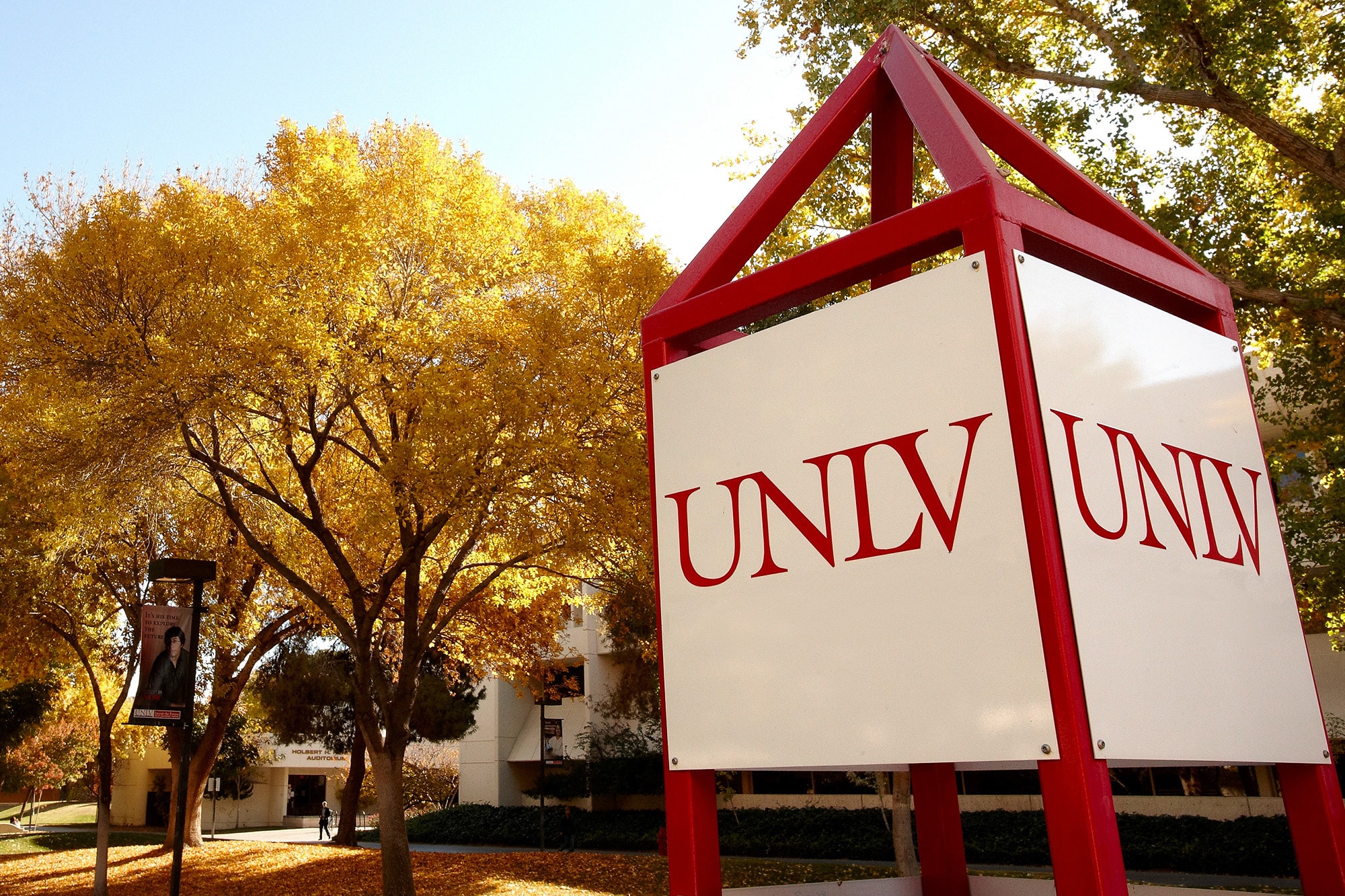With the addition of women's volleyball and soccer programs in recent years, UNLV has made significant progress toward achieving the gender equity standards for university athletics set forth in the federal Title IX program.
"We unquestionably still have some work to do, but we have made real strides in the past three years or so," said UNLV President Carol C. Harter. "I have confidence that (athletic director) Charlie Cavagnaro and his staff will continue to work diligently toward achieving the goals we established in our Gender Equity Compliance Action Plan."
That plan, which covers the years 1997-2002, has received two years of annual review from Lamar Daniel Inc., the gender equity and sports management consulting firm the university hired to monitor its progress in achieving its gender equity goals. In a letter concerning his review of UNLV's steps toward gender equity during the 1997-98 academic year, Daniel said, "There is no question that tremendous improvement occurred in its first year." After his second annual review, he said, "Progress is continuing and UNLV has achieved compliance in several areas."
Chief among the improvements he cited in his reviews were the increase in the percentage of women student-athletes at UNLV. The university has increased its participation rate for women student-athletes from 37 percent in 1996-97, to 42 percent in 1997-98, and then to 47.8 percent in 1998-99.
UNLV's goal is to provide participation opportunities in intercollegiate athletics for men and women student-athletes in substantial proportion to their representation in the student body.
In the fall of 1998, 53.6 percent of UNLV's students were women, while 46.4 percent were men.
Harter, who has been involved in athletic administration since her days as a vice president at Ohio University about 20 years ago, says she is committed to gender equity in sports not just because it has been mandated by Title IX, but because it plainly is the right thing to do.
"It is important that women have equal opportunities with men in every aspect of life," Harter said. "Athletics is one of those areas where movement in the direction of equality was a long time in coming. We owe Title IX for having spurred on the changes. I'm not sure it would have occurred without it."
The athletic scholarship money which makes university education possible for some students who would not be able to afford college otherwise is one obvious benefit many studentathletes derive from playing college sports.
But there also is a less obvious, but perhaps no less important, benefit that women were largely denied until recent years because of the general lack of team sports for women and girls, Harter maintains.
"Playing team sports teaches the athletes valuable lessons about team work that extend far beyond the playing field," Harter said. "Years later, working for companies or volunteering with service organizations, men put to use those team-playing skills they learned playing Little League or college football. They may not even realize that they're using skills they learned while playing team sports, but they are.
"Women, conversely, have been hurt by not having learned those same skills as girls or young adults. Not only have there traditionally not been enough athletic opportunities for girls and women, but what opportunities they have had often have been in the individual sports such as tennis. While individual sports certainly are worthwhile, women also should have access to team sports so that they can learn those skills as well," she said.
Harter herself was an athlete in high school back on Long Island, New York, playing both softball and basketball. 'Y hate to admit it," she said with a laugh, "but I played basketball when there were six women on a team and the guards could not pass the mid-court."
While Harter credits Cavagnaro and his staff for helping make important strides toward achieving gender equity, Cavagnaro says it is UNLV's president who has provided the leadership necessary to get the job done.
"Carol Harter has been a driving force behind our efforts to put our women's athletic programs on a par with our men's programs," Cavagnaro said. "She's the one who went to the state Legislature and successfully lobbied for gender-equity funding.
"As athletic director, I appreciate having someone so knowledgeable and interested in athletics at the helm," he said.



